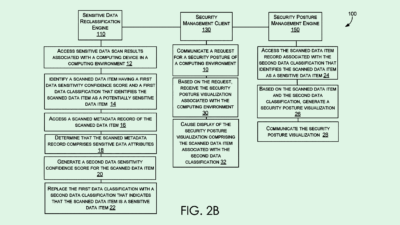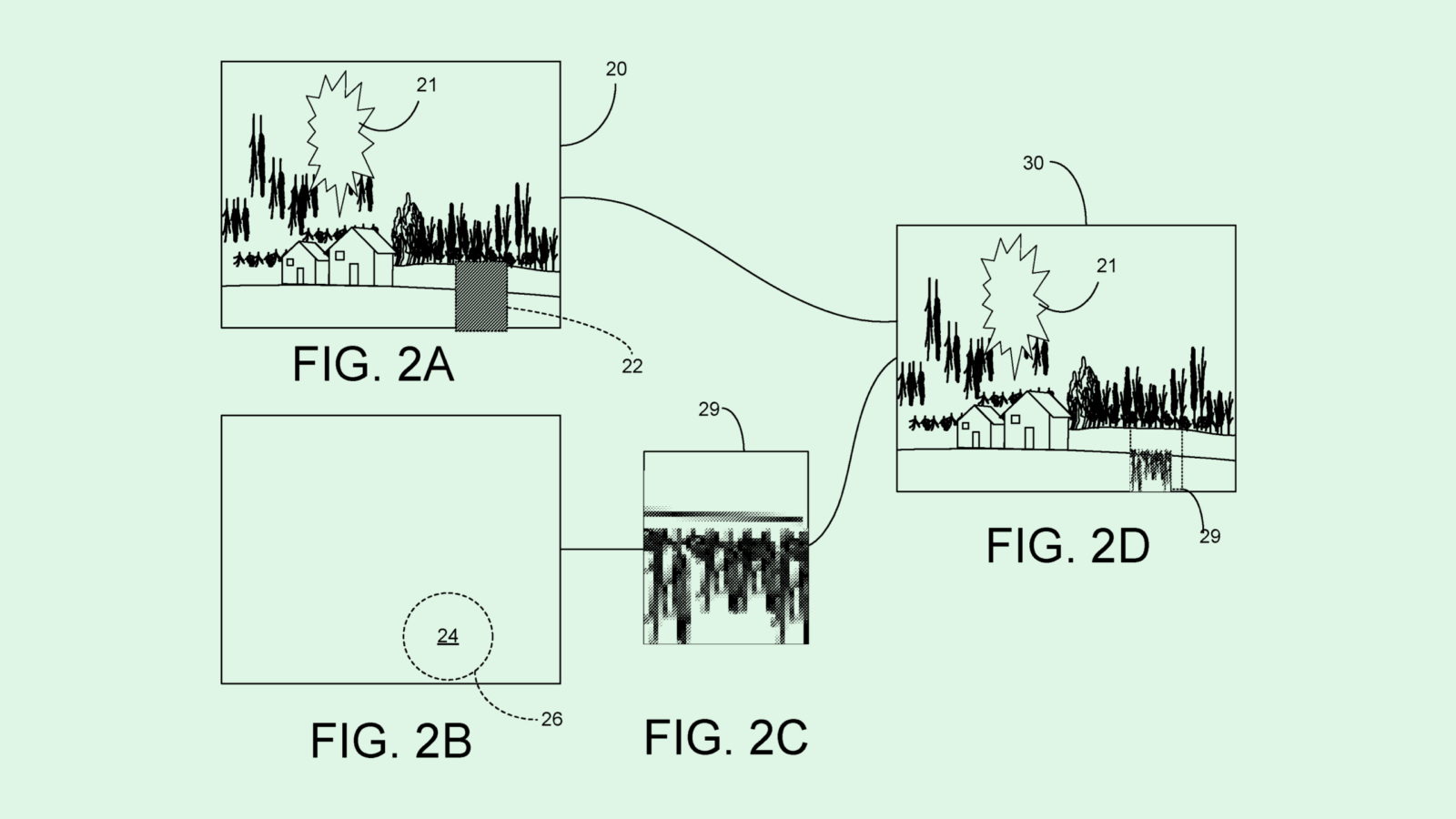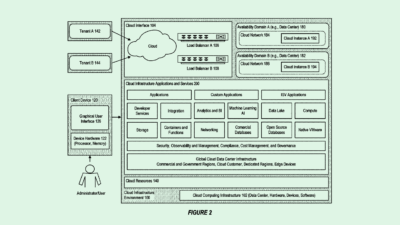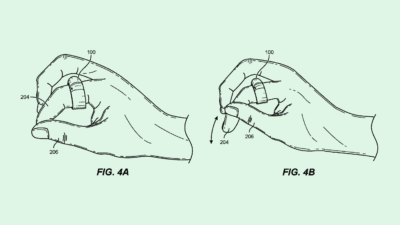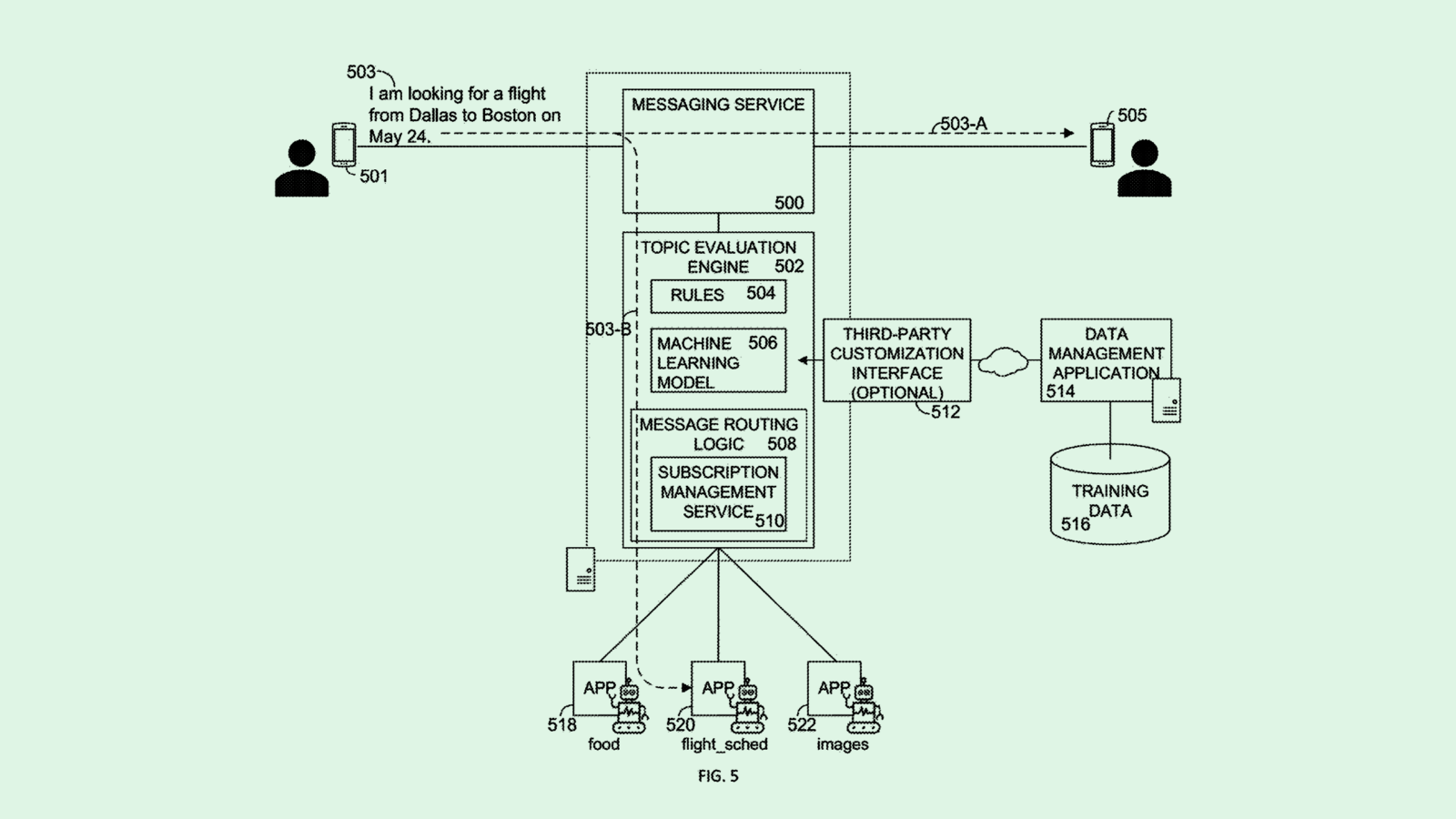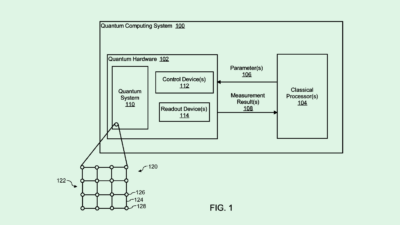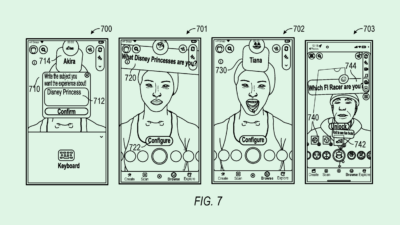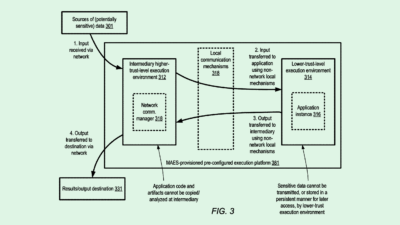Meta VR Cloud Gaming Patent Could Clear the Way for Lighter Headsets
While cloud gaming platforms through Microsoft’s Xbox and Nvidia are already available to consumers, artificial reality cloud streaming isn’t quite there yet.
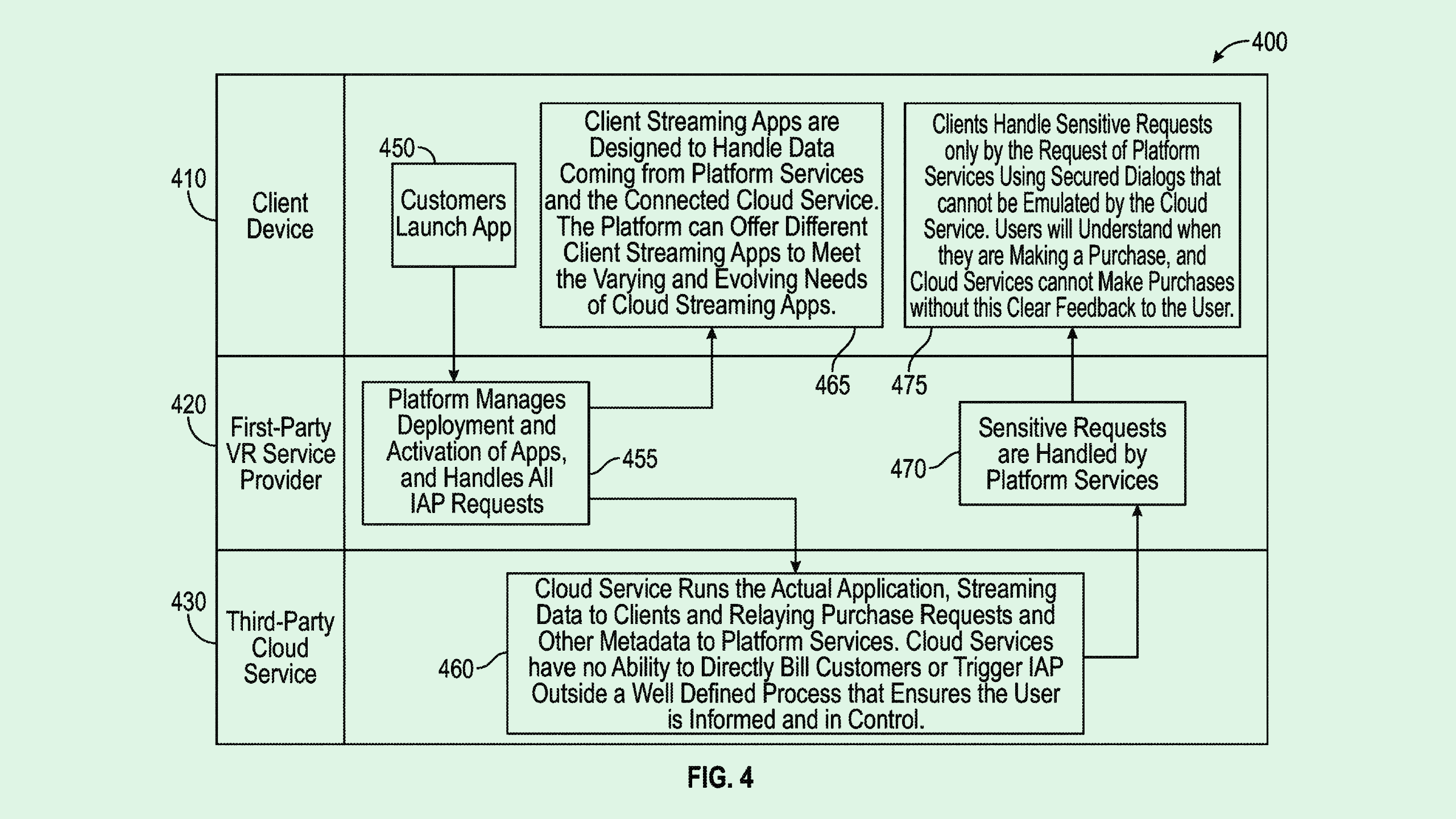
Sign up to uncover the latest in emerging technology.
When it comes to the metaverse, Meta may have its head in the clouds.
The company filed a patent application for a “cloud virtual reality ecosystem.” Meta’s patent describes a powerful cloud gaming and application service that can immensely lighten the load on headsets by sending the computing tasks to third-party providers.
“Typically, VR computer code is rendered locally on a VR headset,” Meta said in the filing. “However, this approach requires locally installed powerful graphical hardware and computing resources.”
The tech itself is relatively simple: When a user wants to access a computing-intense application via their headset, a request is sent to a third-party cloud service consisting of several hosts. From those that are available, one is selected based on resource availability. Finally, a connection request is sent and, once approved by the user, application streaming is established.
In order to protect user data that may be collected in operating cloud-based applications, this ecosystem can be configured so actions related to sensitive and personal data are performed entirely on the headset (so long as that information is not required for rendering). For example, an in-app purchase via headset would be performed locally, with the “results of the transaction” sent to the cloud server.
However, personal data that is needed for rendering, such as face and eye tracking information, could require “explicit firewall permissions and may be auditable.” Meta noted that this “may be safer than having headsets process it locally because the server instances may be firewalled and monitored.”
Meta’s patent, though somewhat broadly focused, lays out a cloud gaming ecosystem that could take a ton of computational work off of the headsets themselves, said DJ Smith, co-founder and chief creative officer at The Glimpse Group.
Lighter-weight headsets have long been a part of the company’s product road map. Smart glasses, in particular, are a large part of this plan; Meta purchased a stake in Ray-Ban maker EssilorLuxottica as they partner on this tech. And a recent patent detailed lightweight headgear capable of VR and AR with a battery life between eight to 12 hours, compared to the Quest Pro’s two.
Shedding bulky processors in favor of cloud computing and slimming down the form factor could knock down barriers of adoption by making the experience frictionless. That stands to be lucrative both for Meta and whichever third-party cloud providers they partner with, said Trevor Morgan, senior vice president of operations at OpenDrives.
“This is a way to work with your major cloud providers in a consumer space,” said Morgan. “On the cloud provider side, this is opening up a really interesting new market.”
But this market might take a while to realize, said Smith. While cloud gaming platforms through Microsoft’s Xbox and Nvidia are already available to consumers, artificial reality cloud streaming isn’t quite there yet.
“We’re a long way from having devices that don’t have the processing built on board,” Smith said. “It’s also really going to be dependent on the [data center] infrastructure and the costs that are attached to it.”
The other potential hitch is privacy, said Morgan. Artificial reality headsets are constantly growing more capable of collecting a lot of personal data. While the patent attempts to reckon with the privacy issues this tech could cause, at the end of the day, it will still lead to more data in more places, he said, which creates a risk in and of itself.
“Imagine this thing gets compromised, and you’ve got millions of consumers whose personal and financial information gets compromised,” said Morgan. “That’s one quick way to kill your whole ecosystem.”


